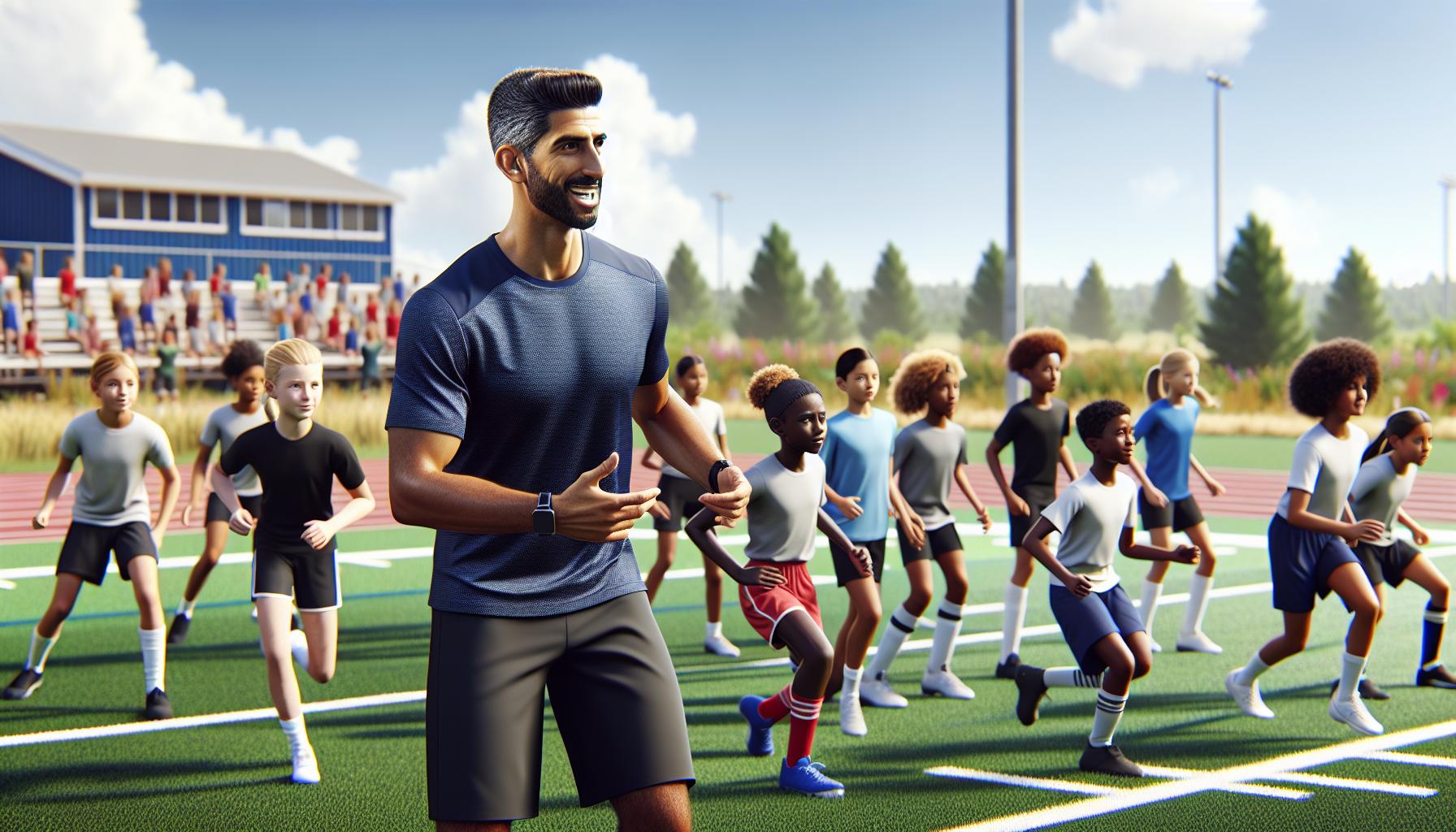In a world where couch potatoes reign supreme, sport science degree jobs are the secret weapon for turning passion into a paycheck. Gone are the days of dreaming about being a professional athlete; now, it’s all about leveraging that love for sports into a career that keeps you in the game—without the risk of a pulled hamstring.
Imagine working in a field that blends science, health, and athleticism. Whether it’s analyzing performance data or helping athletes recover from injuries, sport science graduates are the unsung heroes behind the scenes. With a degree in sport science, the options are as diverse as a buffet at a sports banquet. So, if you’ve got a knack for biomechanics or a passion for nutrition, it’s time to explore how this degree can launch a fulfilling career that’s anything but ordinary.
Sport Science Degree Jobs
A sport science degree opens a variety of career opportunities in the athletic and healthcare sectors. Graduates often engage in roles such as exercise physiology, where they analyze athletes’ physical performance and help design training programs. Nutritionists specializing in sports provide dietary guidance, optimizing athletes’ performance through scientifically-backed nutritional plans.
Many sport science professionals choose to become strength and conditioning coaches. These coaches focus on enhancing athletic ability by improving strength, speed, and endurance. They work closely with athletes, providing tailored training regimens and injury prevention strategies.
Athletic trainers play a critical role as well. They manage injury assessments, rehabilitation protocols, and recovery strategies for sports teams. This position emphasizes knowledge in anatomy, physiology, and injury management, making it essential for supporting athletes.
Sports psychologists represent another specialized field. They help athletes develop mental resilience and perform under pressure. Techniques involve improving focus, motivation, and coping strategies, enhancing overall performance.
Additionally, sport scientists often find opportunities in research and education. They study various aspects of physical activity and performance, contributing to academic institutions or programs. Implementation of scientific discoveries in practical applications can significantly influence sports training and athlete success.
Various sectors, such as professional sports teams, fitness organizations, and academic institutions, employ sport science graduates. The growing emphasis on data analytics in sports creates demand for professionals skilled in interpreting performance metrics. Overall, sport science graduates can pursue diverse and rewarding career paths directly related to their academic training.
Types Of Sport Science Degree Jobs

Sport science graduates access various career opportunities. They can specialize in several fields, each offering unique roles.
Careers In Sports Management
Sports management professionals handle operations within athletic organizations. They oversee marketing strategies, manage events, and ensure smooth team functioning. Positions include sports marketing managers who create branding campaigns and event coordinators who organize competitions. Additionally, facility managers maintain sports venues, ensuring they meet safety and operational standards. Those with leadership skills often excel in this sector, given the need for effective teamwork and strategic planning.
Roles In Exercise Physiology
Exercise physiologists focus on improving athletes’ performance through scientific principles. These experts develop personalized exercise prescriptions based on individual needs, helping athletes maximize training effectiveness. Responsibilities encompass conducting fitness assessments, monitoring exercise programs, and ensuring safe practice. Employment opportunities exist within rehabilitation centers and fitness facilities, emphasizing injury prevention and performance enhancement. Expertise in exercise science equips them to analyze physiological responses to training, making their role crucial in optimizing athletic outcomes.
Opportunities In Sports Coaching
Coaching positions span various levels, from youth leagues to professional teams. Coaches focus on developing athletes’ skills, strategies, and teamwork abilities. They assess performance metrics to provide constructive feedback, enhancing individual and team dynamics. Specific roles include head coaches who manage entire teams and position coaches who specialize in individual athlete development. Strong communication and leadership skills are vital in this field, enabling effective guidance and motivation.
Required Skills For Sport Science Degree Jobs

Career success in the sport science field requires a blend of technical and soft skills. Graduates must be equipped with specific abilities to thrive in various roles, from performance analysis to athlete management.
Technical Skills
Data analysis plays a crucial role in sport science jobs. Graduates should understand statistical methods and be proficient in using software tools for performance evaluation. Knowledge of exercise physiology and biomechanics enhances the ability to design effective training programs. Familiarity with nutritional principles also aids in creating individualized dietary plans. Understanding sports technology, such as wearables and performance trackers, hockey bag significantly contributes to athlete monitoring. Knowledge of research methods helps in contributing valuable insights to the field.
Soft Skills
Interpersonal abilities are essential in sport science roles. Strong communication skills foster effective collaboration among team members and athletes. Problem-solving skills assist in developing strategies for performance enhancement and injury recovery. Empathy helps professionals connect with athletes, cultivating trust and open dialogue. Adaptability ensures quick responses to changing circumstances in training and recovery programs. Leadership skills motivate athletes and inspire them to reach their potential, guiding teams toward shared goals.
Education And Qualifications

Achieving a sport science degree often serves as a foundation for various careers in the sports industry. Students typically pursue Bachelor’s degrees in areas such as Exercise Science, Kinesiology, or Sports Management, which expose them to essential concepts in physiology, biomechanics, and nutrition.
Degree Programs
Degree programs usually incorporate both theoretical learning and practical applications. Coursework might include subjects like exercise physiology, sports psychology, and biomechanics. Students benefit from hands-on experiences, particularly through labs and internships. Some universities offer Master’s degrees and Doctorates for advanced roles in research and academia. Notably, specialized tracks within sports science can cater to specific interests like athletic training or sports nutrition.
Certifications
Certifications significantly enhance job prospects for sport science graduates. Various organizations provide credentials that demonstrate expertise in specific areas. For instance, the American College of Sports Medicine offers certification for exercise physiologists, while the National Strength and Conditioning Association certifies strength coaches. Obtaining certifications often involves passing an exam and maintaining continuing education units. By earning additional credentials, graduates distinguish themselves in a competitive job market and showcase their commitment to professional development.
Job Outlook And Salary Expectations
Job prospects for sport science graduates appear promising. The Bureau of Labor Statistics (BLS) projects a 15% growth in jobs for fitness trainers and instructors from 2020 to 2030, significantly higher than the national average for all occupations. This expansion reflects a growing emphasis on fitness and wellness.
Salaries vary based on specialization and experience. Exercise physiologists earn an average annual salary of approximately $50,000, while sports nutritionists often make around $60,000. Strength and conditioning coaches can expect salaries in the range of $40,000 to $80,000, depending on their level of expertise and the organization they work for.
In professional sports, salary potential increases markedly. Coaches for major league teams can earn six-figure salaries, highlighting the financial rewards of advancing in this field. Athletic trainers, on average, make around $49,000 annually but can see upward movement in pay with experience and additional certifications.
Employment opportunities span multiple sectors. Graduates frequently find positions with sports teams, fitness facilities, rehabilitation centers, and educational institutions. Job roles within the corporate wellness industry are also on the rise as more organizations prioritize employee health.
Networking plays a crucial role in job placement. Many positions are filled through connections within the sports and fitness community. Engaging in internships and professional organizations significantly enhances job prospects for graduates.
Continuous professional development remains important for career advancement. Acquiring certifications can lead to higher salaries and greater job opportunities. Specialized credentials related to strength coaching, nutrition, or exercise science can make candidates more attractive to employers.
Future Opportunities
A sport science degree opens doors to a variety of rewarding career paths. Graduates can leverage their passion for sports while making significant contributions to athlete performance and well-being. With roles ranging from exercise physiologists to sports psychologists, the demand for skilled professionals in this field continues to grow.
By combining technical expertise with essential soft skills, sport science graduates are well-equipped to thrive in diverse environments. The importance of networking and obtaining relevant certifications can’t be overlooked, as these elements enhance job prospects and professional growth. As the sports industry evolves, those with a sport science background will play a vital role in shaping its future.

